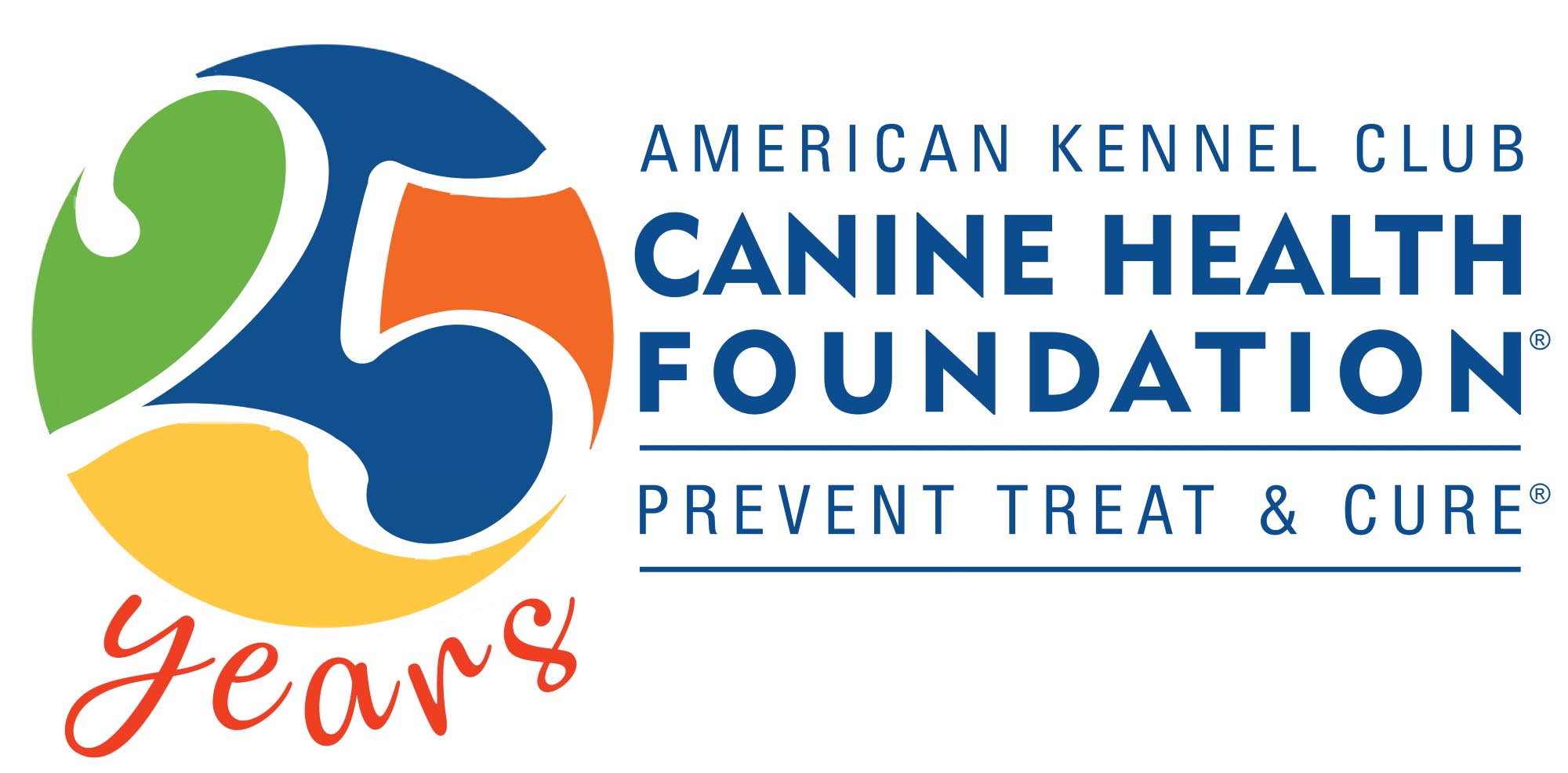|
|
 Established 1903 |
 Member, American Kennel Club |
Health
For further information on Health go to the AKC Health Page

Dear Long Island
Kennel Club,
Warmest greetings
to you from the AKC Canine Health Foundation. As
we all face this challenging time of global
pandemic, we realize so many of our supporters
and their loved ones are affected. Our thoughts
are with you during this challenging time.
Today, we are
writing to share the
AKC Canine Health Foundation’s 2019 Annual
Report, providing our
supporters with a summary of activities,
overview of programs and impact of research
funding for canine health this past year. The
health of our dogs as part of our families is
more important than ever. Also included in this
report are our 2019 financial statements,
demonstrating the Foundation’s fiscal health,
and other important updates.
In 2020, we
mark twenty-five years of progress toward AKC
Canine Health Foundation’s mission for healthy
dogs through impactful scientific health
research and educational programs. Together we
celebrate this milestone and invite you to learn
more about the many people and programs that
made this possible at
akcchf.org/25years.
During these
unprecedented times, the AKC Canine Health
Foundation and its funded researchers continue
to add to the body of scientific work to
prevent, treat and cure canine disease. Canine
health research and educational grants are
available to view in our
Research Grants Portfolio.
Thank you
again for your support and for playing a key
role in another productive year. Please stay
safe and well during this time.
With
warmest regards,

Diane Brown,
DVM, PhD, DACVP
Chief
Executive Officer/Chief Scientific Officer
AKC Canine
Heatlh Foundation
The Healthy Canine
To the dog loving public we want you to realize
there is no such thing that a mixed breed of dog
is healthier than a purebred.
The gene factor plays an important part
in the wellbeing of humans and canines; whether
mixed or purebred.
The advantage of purchasing a purebred
dog is that there are many factors standing
behind your choice.
BREEDERS:
The breeder is your dog’s best friend.
The breeder has done her homework.
Both male and female have been selected
to bring out the best points of the breed in the
offspring.
Both male and female, prior to breeding, have
been health checked with required inoculations
up to date.
If the breed you’re interested in purchasing has
health exams required by the parent club they
will be met.
The Breeder more than likely will have a
contract between the breeder/seller and the
buyer.
The contract is for the benefit of
protecting the buyer, seller and puppy.
The Breeder has done her homework asking you as
the potential buyer a host of questions to
assure the puppy will be in safe hands.
More than likely the potential owner will
have met the breeder.
The Breeder will make certain the puppy has had
the required inoculations before leaving the
breeder.
Most breeders will have the veterinarian implant
a mircrochip at the breeder’s expense.
The new owner will leave the breeder with a host
of information pertaining to the care of the
pup; include a packet of food and probably a toy
or two.
AKC CANINE HEALTH FOUNDATION:
The CHF approves research that will improve the
health of all breeds both mixed and purebred.
Donations to sustain research for the
most part comes from the purebred fancy.
AKC partners with CHF financially to insure the
mental and physical health of dogs.
Major concerns of CHF at this time are:
Cancer…of the 77 million dogs owned (both mixed
and purebred) ¼ will succumb to cancer.
Bloat..a gastric condition
Epilepsy..neurological condition
Heart
40% of dogs today are seniors; age 8 being
considered the mean age.
CHF is concerned with the aging of
purebred dogs.
Donations to sustain studies, approve grants to
researchers at various veterinarian schools, and
to send speakers on various topics out to the
fancy is dependent upon the generosity of the
canine community...you and me.
Purebred breed clubs are instrumental in
making these donations.
For further information go to the Canine Health
Foundation
www.akcchf.org/

|